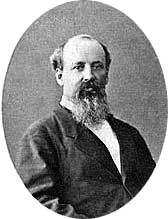Presidency of Abraham Lincoln
Presidency of the 16th president of the United States
The presidency of Abraham Lincoln began on March 4, 1861, when he was inaugurated as the 16th president of the United States, and ended upon his assassination on April 15, 1865. Lincoln, a member of the Republican Party, led the nation through the American Civil War, its bloodiest war and its greatest moral, constitutional, and political crisis. He preserved the Union, abolished slavery, strengthened the federal government, and modernized the U.S. economy.
Election of 1860
Lincoln's election in 1860 was a pivotal moment in American history. He won the presidency on a platform that opposed the expansion of slavery into the western territories, which led to the secession of several southern states and the formation of the Confederate States of America.
Civil War
The Civil War began in April 1861, shortly after Lincoln took office. His primary goal was to restore the Union. Lincoln faced immense challenges, including managing the war effort, dealing with dissent within the Union states, and navigating complex international relations.
Emancipation Proclamation
On January 1, 1863, Lincoln issued the Emancipation Proclamation, which declared that all slaves in the Confederate states were to be set free. This executive order shifted the war aims of the Union, adding moral force to the Union cause and preventing European powers from intervening on behalf of the Confederacy.
Gettysburg Address
On November 19, 1863, Lincoln delivered the Gettysburg Address at the dedication of the Soldiers' National Cemetery in Gettysburg, Pennsylvania. In this brief but profound speech, he reiterated the principles of human equality espoused by the Declaration of Independence and redefined the Civil War as a struggle not just for the Union, but also for the principle of human equality.
Domestic Policies
Lincoln's domestic policies were focused on the war effort and included measures to support the economy and infrastructure. He signed the Pacific Railway Acts, which facilitated the construction of the First Transcontinental Railroad, and the Homestead Act of 1862, which provided land to settlers in the West.
Assassination
Lincoln was assassinated by John Wilkes Booth on April 14, 1865, while attending a play at Ford's Theatre in Washington, D.C. He died the following day, making him the first U.S. president to be assassinated. His death was a significant blow to the nation, which was still reeling from the Civil War.
Legacy
Lincoln is widely regarded as one of the greatest presidents in American history. His leadership during the Civil War and his efforts to end slavery have left a lasting legacy. He is commemorated in numerous monuments, including the Lincoln Memorial in Washington, D.C.
Related Pages
- Abraham Lincoln
- American Civil War
- Emancipation Proclamation
- Gettysburg Address
- Assassination of Abraham Lincoln
- Lincoln Memorial
- Republican Party (United States)
Transform your life with W8MD's budget GLP-1 injections from $125.
W8MD offers a medical weight loss program to lose weight in Philadelphia. Our physician-supervised medical weight loss provides:
- Most insurances accepted or discounted self-pay rates. We will obtain insurance prior authorizations if needed.
- Generic GLP1 weight loss injections from $125 for the starting dose.
- Also offer prescription weight loss medications including Phentermine, Qsymia, Diethylpropion, Contrave etc.
NYC weight loss doctor appointments
Start your NYC weight loss journey today at our NYC medical weight loss and Philadelphia medical weight loss clinics.
- Call 718-946-5500 to lose weight in NYC or for medical weight loss in Philadelphia 215-676-2334.
- Tags:NYC medical weight loss, Philadelphia lose weight Zepbound NYC, Budget GLP1 weight loss injections, Wegovy Philadelphia, Wegovy NYC, Philadelphia medical weight loss, Brookly weight loss and Wegovy NYC
|
WikiMD's Wellness Encyclopedia |
| Let Food Be Thy Medicine Medicine Thy Food - Hippocrates |
Medical Disclaimer: WikiMD is not a substitute for professional medical advice. The information on WikiMD is provided as an information resource only, may be incorrect, outdated or misleading, and is not to be used or relied on for any diagnostic or treatment purposes. Please consult your health care provider before making any healthcare decisions or for guidance about a specific medical condition. WikiMD expressly disclaims responsibility, and shall have no liability, for any damages, loss, injury, or liability whatsoever suffered as a result of your reliance on the information contained in this site. By visiting this site you agree to the foregoing terms and conditions, which may from time to time be changed or supplemented by WikiMD. If you do not agree to the foregoing terms and conditions, you should not enter or use this site. See full disclaimer.
Credits:Most images are courtesy of Wikimedia commons, and templates, categories Wikipedia, licensed under CC BY SA or similar.
Contributors: Prab R. Tumpati, MD







